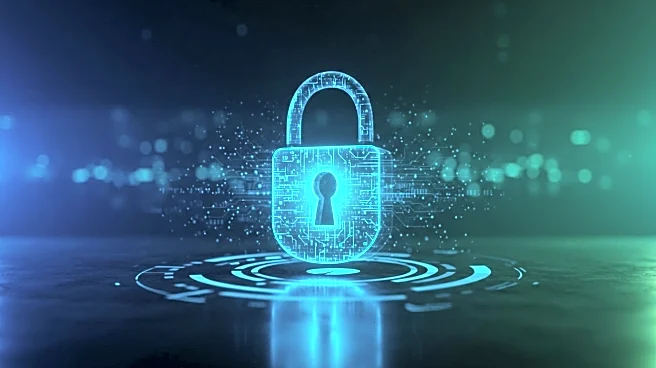What is the story about?
What's Happening?
Agentic AI, a new form of artificial intelligence, is poised to transform the cybersecurity landscape. Experts describe AI agents as self-contained code modules capable of independently directing actions. These agents are expected to perform tasks autonomously, facilitated by a Model Context Protocol server that bridges AI models with external tools and services. The technology is likened to generative AI, which provides answers to questions, but agentic AI goes further by executing actions independently. Despite its potential, agentic AI carries risks, including the possibility of errors or 'hallucinations' that could lead to security issues.
Why It's Important?
The introduction of agentic AI in cybersecurity could significantly enhance the efficiency and effectiveness of security operations. By automating routine tasks, AI agents can free up human analysts to focus on more complex issues, potentially improving overall security posture. However, the risks associated with AI errors highlight the need for careful implementation and oversight. The technology's impact on cybersecurity could lead to shifts in job roles, with a focus on managing AI systems rather than performing manual tasks. This evolution may require new skill sets and training for cybersecurity professionals.
What's Next?
As agentic AI continues to develop, organizations will need to address the challenges of trust and transparency in AI systems. Ensuring that AI agents operate reliably and safely will be crucial to their successful integration into cybersecurity frameworks. Companies may need to establish protocols for monitoring AI actions and mitigating potential errors. The broader adoption of agentic AI could prompt regulatory discussions on AI governance and ethical considerations, influencing future cybersecurity policies and practices.
Beyond the Headlines
The deployment of agentic AI raises ethical and legal questions about accountability and decision-making in cybersecurity. As AI agents gain the ability to act autonomously, determining responsibility for their actions becomes complex. This shift may lead to new legal frameworks addressing AI liability and compliance. Additionally, the cultural impact of AI-driven security could alter perceptions of privacy and data protection, necessitating public discourse on the balance between technological advancement and individual rights.















